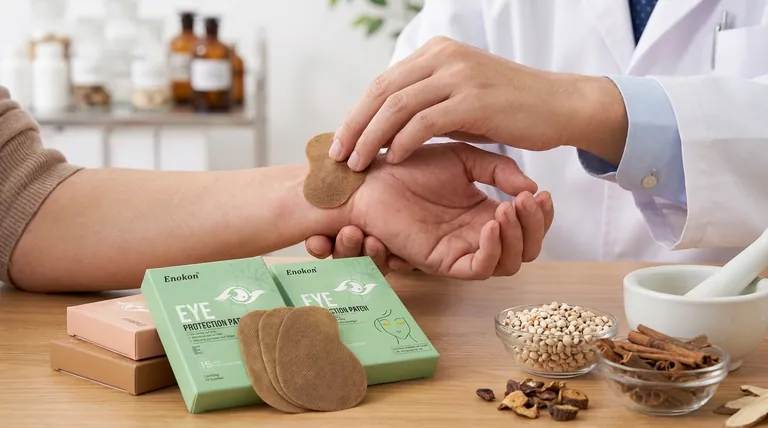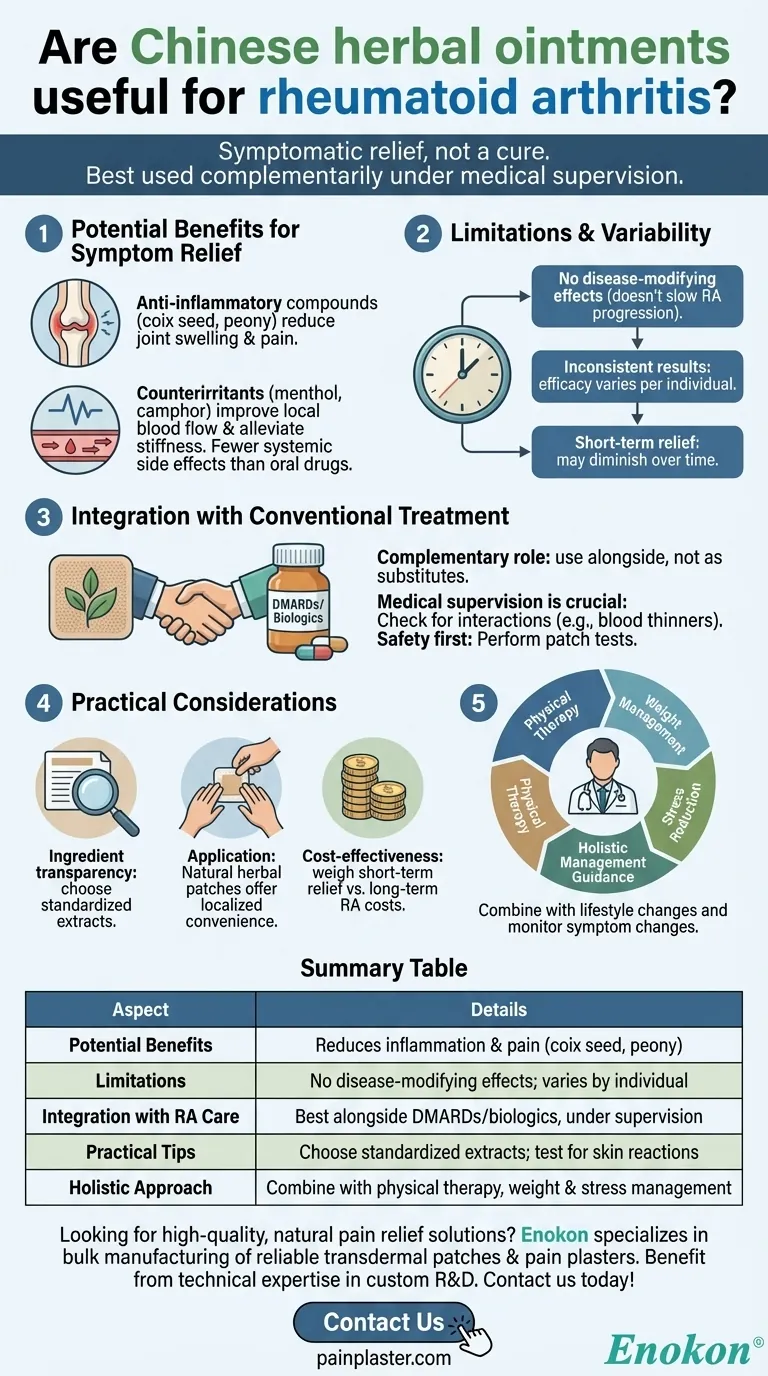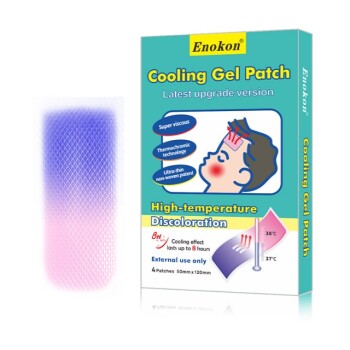Chinese herbal ointments, including natural herbal patches, may offer symptomatic relief for rheumatoid arthritis (RA) by reducing inflammation and pain through ingredients like coix seed, cassia twig, and peony. However, their efficacy varies, and they should complement—not replace—conventional treatments like DMARDs or biologics. Medical supervision is crucial due to formulation complexities and potential interactions. While menthol or camphor in plasters can improve blood flow and stiffness, long-term management requires a holistic approach integrating medication, physical therapy, and lifestyle changes.

Key Points Explained:
-
Potential Benefits for Symptom Relief
- Anti-inflammatory compounds (e.g., coix seed, peony) may reduce joint swelling and pain.
- Counterirritants like menthol or camphor in plasters temporarily alleviate stiffness by enhancing local blood flow.
- Unlike systemic drugs, topical applications target specific joints with fewer systemic side effects.
-
Limitations and Variability
- No disease-modifying effects: These ointments address symptoms but don’t slow RA progression.
- Inconsistent results: Efficacy depends on individual response and formulation quality.
- Short-term relief: Effects may diminish over time, requiring adjunct therapies.
-
Integration with Conventional Treatment
- Complementary role: Use alongside DMARDs/biologics, not as substitutes.
- Medical supervision needed: Herbal mixtures can interact with medications (e.g., blood thinners).
- Safety first: Patch tests are advised to rule out skin reactions.
-
Practical Considerations for Purchasers
- Ingredient transparency: Prioritize products with standardized herbal extracts.
- Application: Natural herbal patches offer convenience for localized pain vs. messy ointments.
- Cost-effectiveness: Compare short-term relief against long-term RA management expenses.
-
Holistic Management Approach
- Combine with physical therapy, weight management, and stress reduction.
- Monitor symptom changes and adjust use under a rheumatologist’s guidance.
While these remedies provide a non-invasive option, their value lies in personalized, supervised use within a broader RA care plan. Have you explored how specific herbal blends align with your current treatment?
Summary Table:
| Aspect | Details |
|---|---|
| Potential Benefits | Reduces inflammation and pain with ingredients like coix seed and peony. |
| Limitations | No disease-modifying effects; efficacy varies by individual. |
| Integration with RA Care | Best used alongside DMARDs/biologics under medical supervision. |
| Practical Tips | Choose standardized herbal extracts; test for skin reactions. |
| Holistic Approach | Combine with physical therapy, weight management, and stress reduction. |
Looking for high-quality, natural pain relief solutions for rheumatoid arthritis? Enokon specializes in bulk manufacturing of reliable transdermal patches and pain plasters tailored for healthcare and pharma distributors. Benefit from our technical expertise in custom R&D and development to create products that meet your specific needs. Contact us today to discuss how we can support your RA care solutions!
Visual Guide

Related Products
- Herbal Eye Protection Patch Eye Patch
- Capsaicin Chili Medicated Pain Relief Patches
- Asthma Cough and Pain Relief Patch for Adults and Kids
- Prostate Pain Kidney Health Care Patch for Men
- Mugwort Wormwood Pain Relief Patch for Neck Pain
People Also Ask
- Why is Glycerine applied to the Petri dish as a lubricant during the transdermal patch casting? Ensure Damage-Free Release
- Why is Pain Relief Patch considered discreet? Unseen Comfort for an Active Lifestyle
- How does the ketoprofen TDS patch work? Targeted Pain Relief with Minimal Side Effects
- How long does it take for a fentanyl patch to take effect in cats and dogs? Vet-Approved Pain Relief Timelines
- Were there any contradictory findings regarding transdermal patch safety? Key Insights for Healthcare Buyers
- What should you do in case of an overdose with transdermal diclofenac? Immediate Action Guide
- How does diclofenac epolamine topical system compare to other NSAID pain relievers?
- Are there special considerations for using menthol patches during pregnancy or breastfeeding? Safety Guide
















